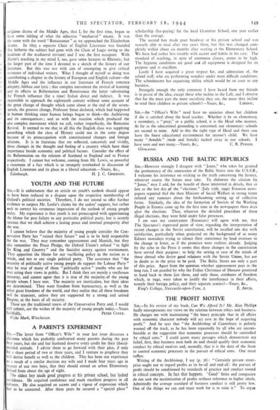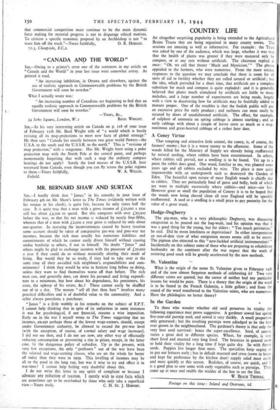THE PROFIT MOTIVE
SIR,—In his review of my book, Can We Afford Ix? Mr. Alan Phillip, badly misrepresents my views on the relation between ethics and business. He charges me with maintaining "the hoary principle that in all affairs with economic character nobody will act save in the hope of acquiring profit." And he says that "the Archbishop of Canterbury is politely warned off the track, as he has been repeatedly by all who are uncom- fortable at the suggestion that economic processes should be controlled by ethical aims." I could quote many passages which demonstrate my belief, first, that business men both do and should qualify their economic conduct by ethical motives and, secondly, that it is the duty of the State to control economic processes in the pursuit of ethical aims. One must suffice.
Writing of the Archbishop, I say (p. 38): "Certainly private enter- prise ought not to regard profits as its be-all and end-all: the pursuit of profit should be conditioned by standards of practice and conduct rooted in ethical concepts. In fact that happens. ' Good ' firms and companies do not seek the maximisation of profits without reference to higher ideals. Admittedly the average standard of business conduct is still pretty low. One of the things we can and must work for is to raise it." To argue
that commercial competition must continue to be the main dynamic force making for material progress is not to disparage ethical motives. To criticise a specific economic proposal by an Archbishop is not "to
warn him off the track."—Yours faithfully, 0. R. HOBSON. 72-3, Cheapside, E.C.2.



























 Previous page
Previous page